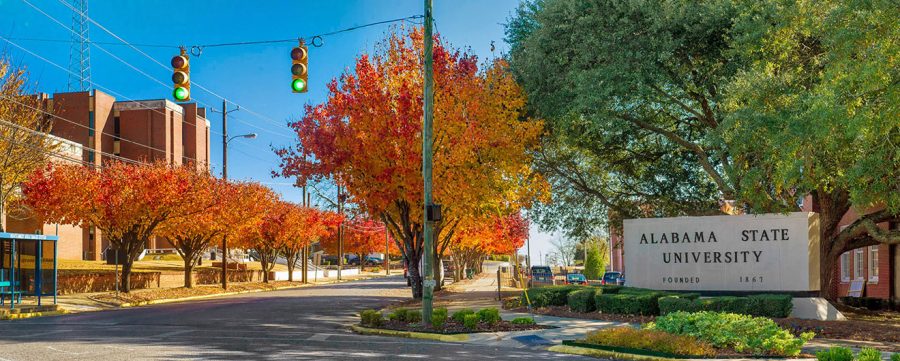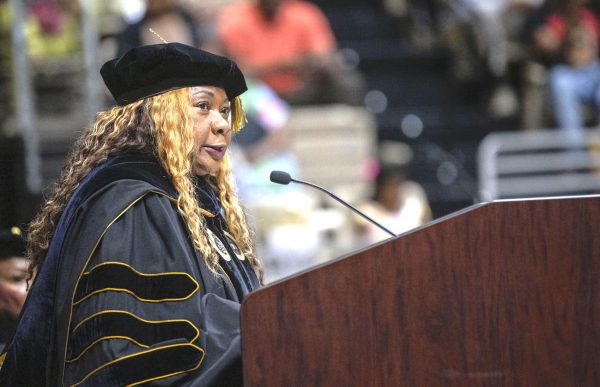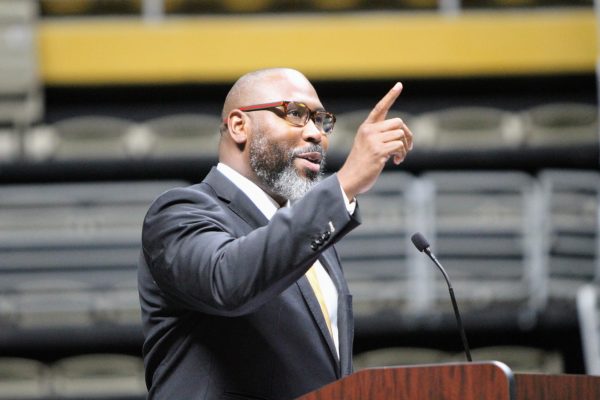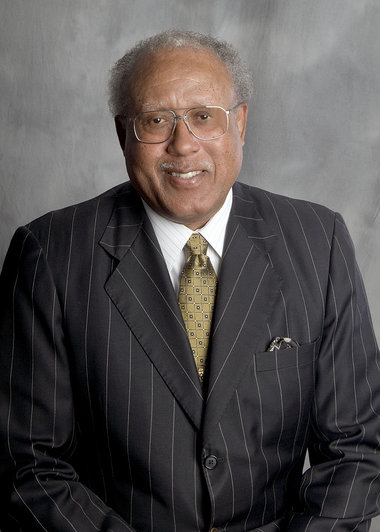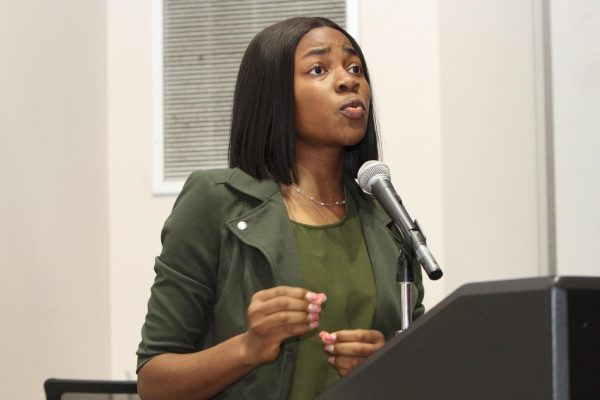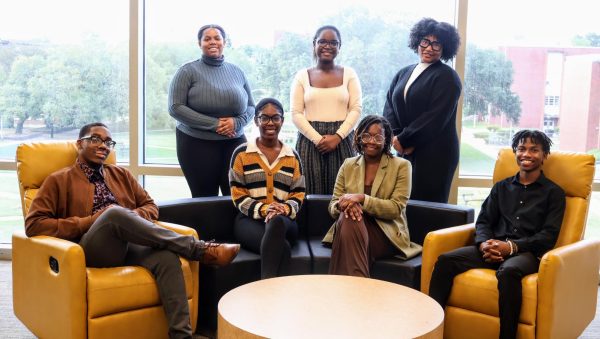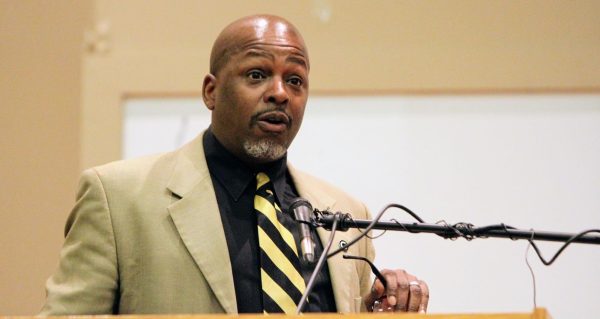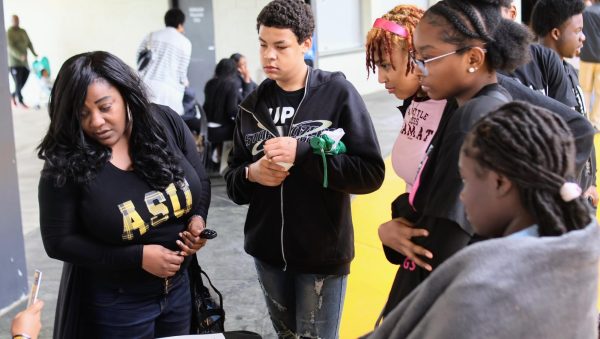Mechanical engineering may become a major
February 25, 2023
For most entry-level mechanical engineering jobs, students will need a bachelor’s degree. To become a mechanical engineering graduate, a student will need an academic degree program that combines classroom courses with practical applications and simulation, mechanical engineering technology, problem-solving, teamwork, and an emphasis on developing communication skills.
If Alabama State University has its way and the proposal is approved by the Alabama Commission on Higher Education (ACHE), mechanical engineering as an academic program will become a reality at the university.
Last year, Derrick Dean, professor of biomedical engineering, approached president Quinton T. Ross, Jr., Ph.D., after Ross released his new strategic vision for the university. Part of that vision was the need for new programs that would attract students to Alabama State University.
“I had always wanted to expand the engineering program,” Dean said. “Part of the reason I came to ASU was to start a biomedical engineering program.”
Mechanical engineering was chosen because it is a little broader than other engineering programs, such as computer, civil, or electrical engineering.
“That way, you can balance out what you have,” Dean said. “And it makes it easier later on to add the others because they can build off themselves. Also, there’s a good demand for mechanical engineers in this region, particularly because of the automotive industry.”
Geographically, Dean believes that it would be beneficial to produce mechanical engineers who could fill the demand in the state.
Financial numbers for starting the program are still being bounced around, but there are other things Dean needs to begin officially.
“We need some faculty members,” he said. “In some cases, faculty members are the most expensive part of any endeavor. We also need more lab space and equipment to go with the labs. We’ve been working on the numbers, so it’s still something we’re going back and forth on.”
The number of students, as well as faculty, will be a necessary component regarding the success of the new program.
“You would like to have as many students as possible from the point of the state,” Dean said. “In order for a program to be considered viable, you need to have at least eight graduating students per year. We need to have a good enrollment of thirty or forty students initially to account for people who might change their mind as they move through the program.”
Mechanical engineering is an occupation that requires a large amount of math, and the amount of math majors at Alabama State University is small. Because of this, recruiting potential students for the program may prove to be challenging.
“Recruiting is a big thing because we need resources to go out and find the students who are interested,” Dean said. “And also attract them with scholarships. We’re starting locally, and going out and talking to people.” Dean was surprised that a majority of parents and students that he had talked to were interested in mechanical engineering.
He continued.
“We’ll keep using all of the means we have at our disposal. Going out locally and also working with the admissions office to get the word out as they travel to other places. We will also use social media to get the word out as well.”
Alabama State University has been around for over 150 years, but compared to the other institutions surrounding it, it is the one most recently founding a mechanical engineering program. Despite being aware of this, Dean wasn’t intimidated.
“One of the things that sets us apart is being able to produce minority engineers,” Dean said. “Even with all of the schools that exist across the country, only about four percent of the graduating engineering majors are minorities. We have a role to play because if those problems could have been solved by the existing schools, they would have been solved. I think that’s one of our strengths.”
In building this program, Dean met with a lot of the programs around the state in the larger schools. He contacted the department chairs and spoke with them, and they agreed about the lack of minorities in these fields. Dean’s new program also creates a pipeline for ASU graduates to go to graduate school at those other universities.
“It’s attractive because of the diversity part,” Dean said. “Diversity not just in terms of color but also in terms of thought. We produce a lot of creative individuals, and so we can tap into that.”
Creating minority voices in these fields is a priority for Dean.
“We’re a large portion of the United States,” Dean said. “13-15 percent. But if we’re less than 5 percent of the graduates in engineering, then that means that we’re consuming a lot of the technology, but we’re not creating it. On the other hand, if we have more of us out there, we can create things that may be useful for our community. We can also utilize our creativity to make things better for everybody.”
He continued.
“And it also creates a positive role model for all the people coming behind us, so that when they see more minority engineers across the board in these fields, it’ll inspire them.”
The program has yet to be approved by the Alabama Council of Higher Education. The proposal has been circulated to other schools, and those institutions have the power to comment on the university’s proposal. So far, the program has been met very positively, and Dean is satisfied with creating awareness about it.


